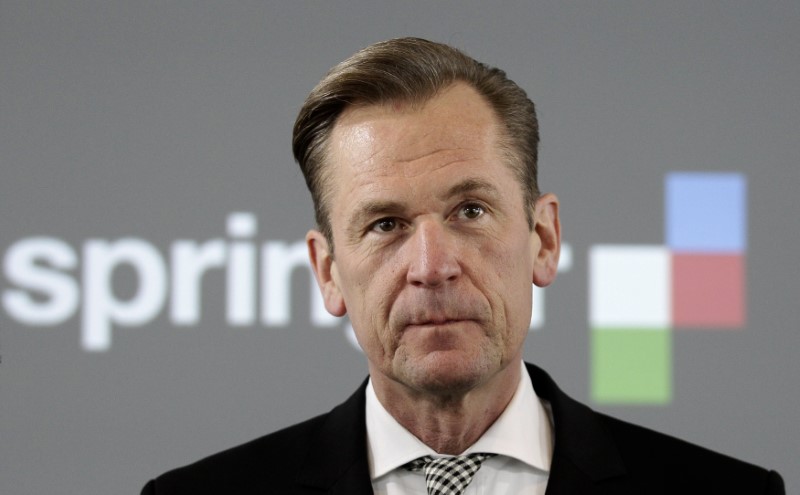LONDON (Reuters) - Brexit will be more painful for the rest of Europe than for Britain which could emerge stronger and better off than its European neighbours, Mathias Doepfner, chief executive of Axel Springer, told the Financial Times.
Doepfner, head of one of Europe's largest media companies, said Britain was bound to experience short-term pain as a consequence of its June 23 vote to quit the EU.
But Doepfner added that "in three to five years from now, my bet would be that England will be better off than continental Europe".
Doepfner said he saw Britain moving towards a "more free market-oriented model, while Europe is step by step transforming into a transfer union" where funds were being channelled from successful states to the struggling ones.
"And that can put a lot of investors off," Doepfner told the FT in an interview published on Tuesday. "If Britain can create an alternative here, I think that is highly attractive," he said.
The June 23 vote took many investors and chief executives by surprise, triggering the deepest political and financial turmoil in Britain since World War Two and the biggest ever one-day fall in sterling against the dollar.
Despite warnings before the vote that Brexit would shatter economic confidence, some positive economic data and Softbank's $32 billion takeover of Britain's technology company ARM have stoked the perception that Britain could prosper outside the EU.
Still, Prime Minister Theresa May and her ministers admit they need to reassure investors from the United States, Japan, China and India that the United Kingdom and London, the only financial capital to rival New York, are still good places to make money.
Britain's allies fear that its exit from the EU could mark a turning point in post-Cold War international affairs that will weaken the West in relation to China and Russia, undermine efforts toward European integration and hurt global free trade.

Axel Springer, the publisher of Europe's largest daily Bild, cut its 2016 sales guidance in August as a drop in the British pound caused by the Brexit vote hit advertising revenues from Britain.